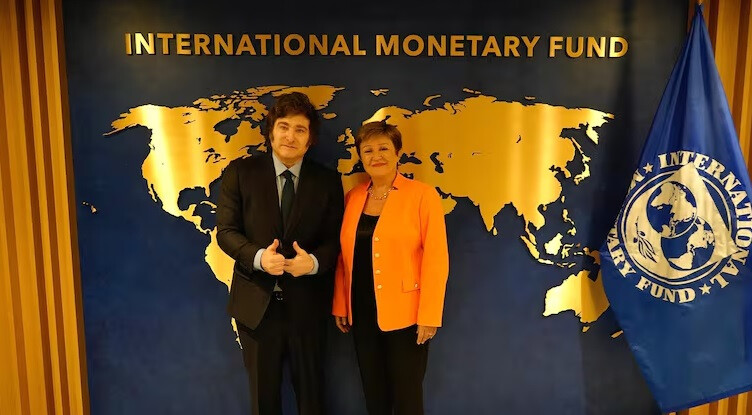
Buenos Aires, Argentina - The Argentine legislature has granted President Javier Milei's administration the authority to pursue a fresh loan agreement with the International Monetary Fund (IMF), a move finalized on Tuesday despite significant public outcry over the government's aggressive fiscal tightening. The yet-to-be-specified loan amount will add to Argentina's existing $44 billion debt burden with the IMF, dating back to 2018.
The lower house of Congress passed the crucial motion with 129 votes in favor, 108 against, and 6 abstentions. The vote affirmed President Milei's executive order, which he had announced on March 11th. The decision was met with immediate condemnation from thousands of protesters who amassed around the congressional building. Demonstrators voiced their strong opposition to President Milei's stringent austerity measures and the renewed engagement with the IMF.
President Milei celebrated the outcome on social media, posting a concise "Long live freedom!"
The approved framework indicates that the new financing will be provided under the IMF's Extended Fund Facility (EFF), offering a 10-year repayment period and a 4.5-year grace period. However, the exact size of the loan package remains undisclosed.
Official documents reveal that the incoming funds are earmarked for two primary purposes: repaying short-term Treasury bills (Letras del Tesoro) held by Argentina's Central Bank (BCRA) and refinancing existing obligations under the 2022 IMF Extended Fund Facility.
Argentina's precarious economic situation, characterized by volatile markets and frequent interventions by the Central Bank to prop up the struggling peso, has underscored the urgent need for an infusion of foreign reserves. In a stark illustration of this pressure, the Central Bank has reportedly sold off $932 million in the last four trading days alone in a bid to defend the peso, representing a significant 3.4% depletion of its reserves.
During the congressional debate, Mercedes Yano, a representative from the ruling La Libertad Avanza coalition, championed the agreement as "a tool to increase the sustainability of the stabilization plan, ease exchange rate restrictions, lower inflation, and allow us to return to a path of development."
Conversely, opposition lawmaker Daniel Arroyo voiced deep skepticism, questioning the efficacy of the loan by stating, "To believe that (the IMF dollars) will not be drained requires considerable faith, almost blind faith."
The congressional proceedings were shadowed by a large-scale protest organized by a diverse coalition of football supporters, labor unions, and social organizations. These groups rallied in support of retirees, who are bearing a significant brunt of President Milei's austerity measures, and their demonstration led to the blockade of the area surrounding the Congress.
The approval of the IMF loan is anticipated to further inflame tensions between the Milei administration and various segments of the population already reeling from the impact of his austerity policies. A similar demonstration just a week prior witnessed violent confrontations, resulting in serious injuries to a photojournalist, raising concerns about potential escalations in the current climate of discontent.
[Copyright (c) Global Economic Times. All Rights Reserved.]






























